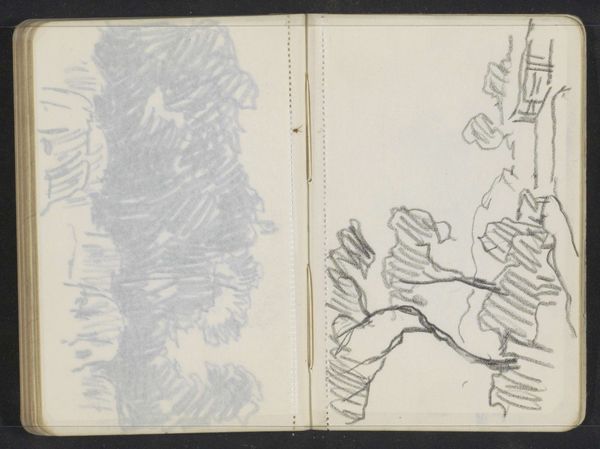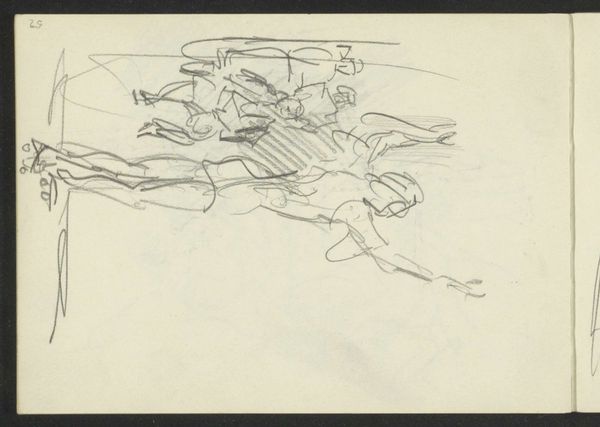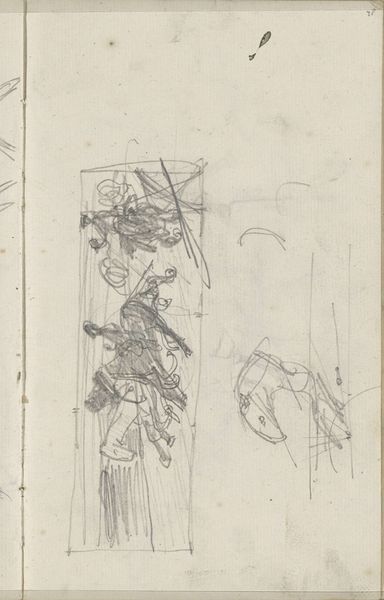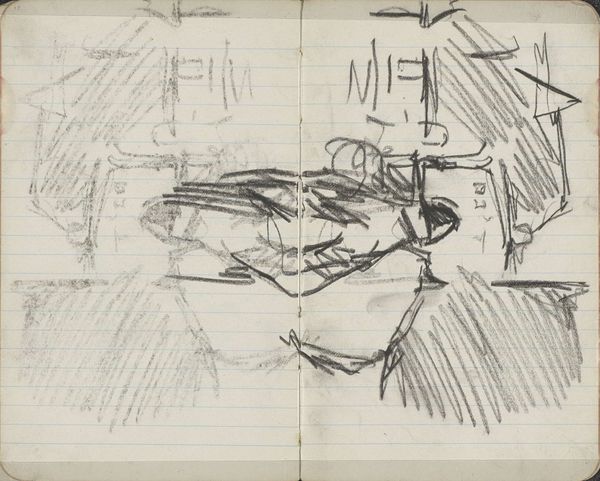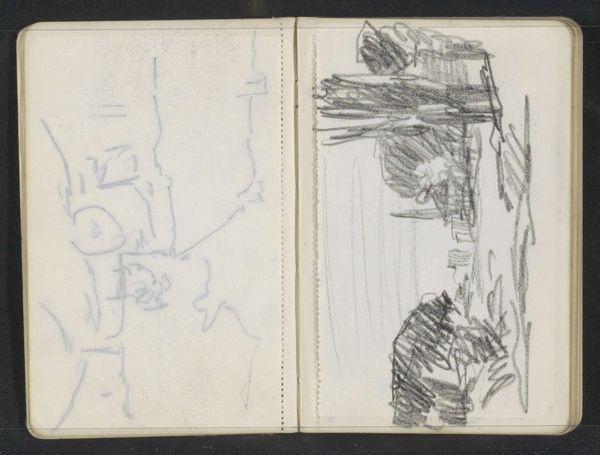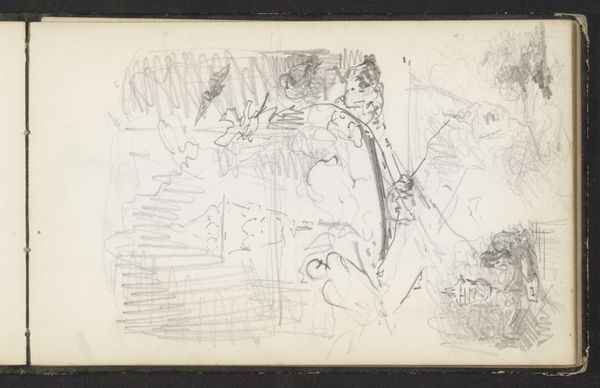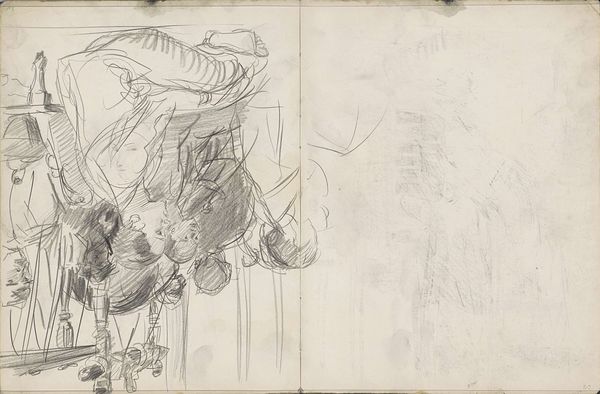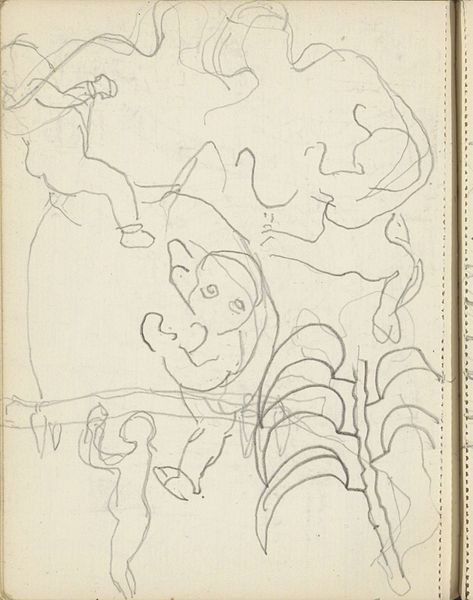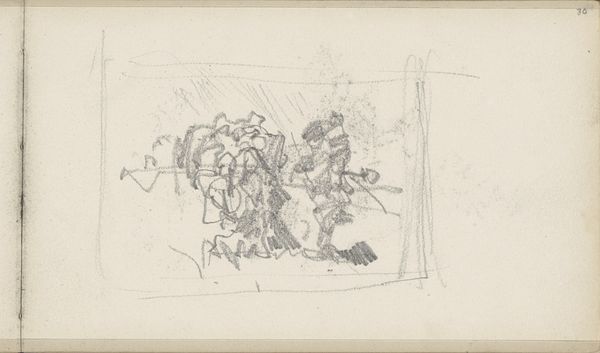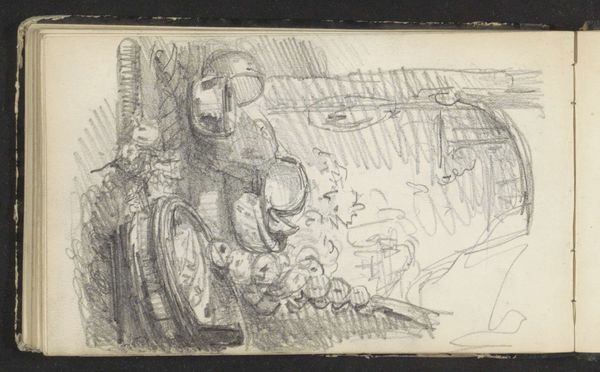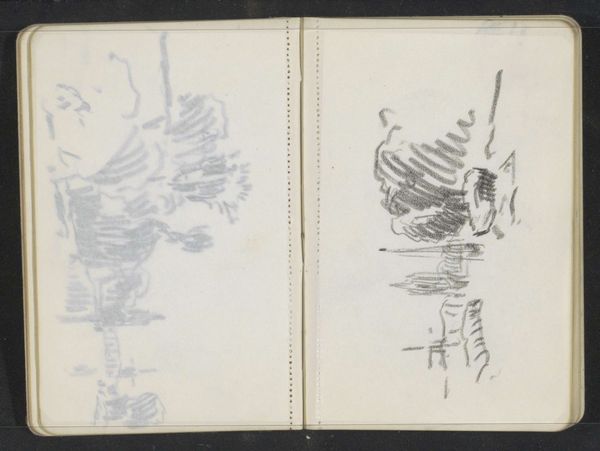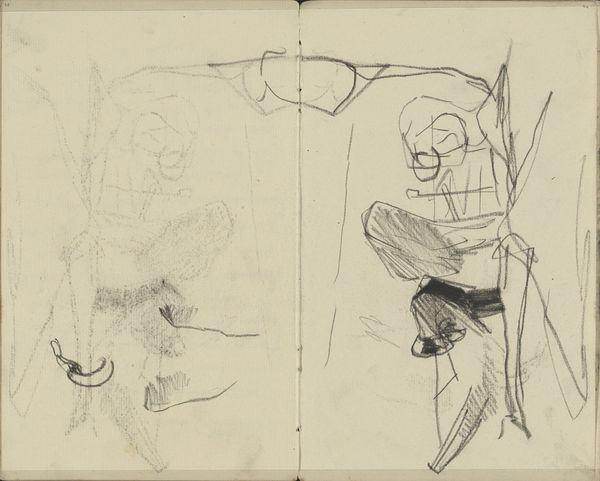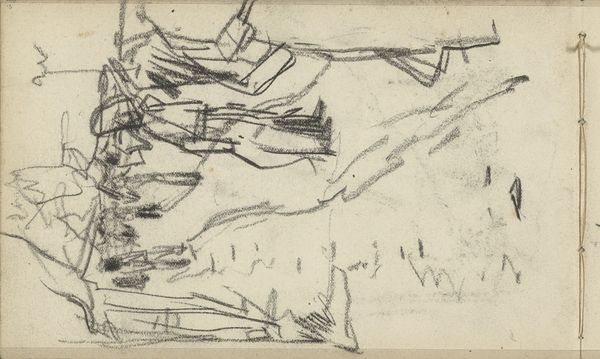
drawing, graphite
#
portrait
#
drawing
#
personal sketchbook
#
graphite
#
sketchbook drawing
#
cityscape
Copyright: Rijks Museum: Open Domain
Editor: Here we have "Rijtuigen," or "Carriages," a graphite drawing in a personal sketchbook by Isaac Israels, dating somewhere between 1887 and 1934. It’s a really quick sketch, almost gestural. What jumps out at me is how immediate it feels, like a fleeting moment captured. What do you see in this piece? Curator: What strikes me is the glimpse it offers into the everyday realities of urban life during a period of immense social change. Israels was part of a generation of artists turning away from academic painting and embracing modern subjects. These sketches are records, aren't they? Fragments of a world increasingly defined by mobility, by the hustle of the city, by visible markers of socioeconomic difference. The horse-drawn carriage in this time became a symbol of class and luxury. Does the dynamism of the lines and implied movement tell us about how he viewed progress, and the society it supported? Editor: That’s fascinating, I hadn't considered the carriage itself as a statement on society. It feels like we’re peeking into his personal thoughts, like a visual diary entry. What's the purpose of the second sketch on the right page, showing something unidentifiable, perhaps related to horses again? Curator: It reinforces this sense of Israels seeking to rapidly note what he encounters; what appears important for recording; and to reflect on how this rapidly shifting urban landscape might be rendered into art. I believe it tells us much about what he found intriguing, how he considered his own time. This page might show how the artist actively helped to define what and who gets remembered, included, even celebrated through art. How can sketches like this change the ways we view our museums or collections of “great art”? Editor: That’s a compelling point, about influencing artistic recognition. Seeing this challenges my expectations of what "art" is. Thank you for that insight. Curator: And thank you for prompting a reflection on the quiet politics embedded in a seemingly simple drawing.
Comments
No comments
Be the first to comment and join the conversation on the ultimate creative platform.
